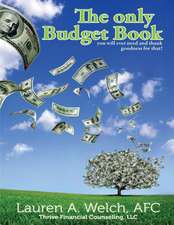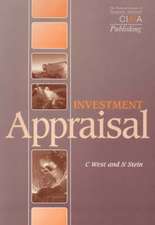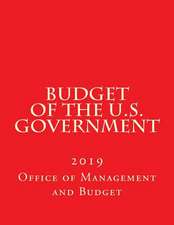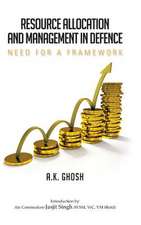Strategic Finance for Criminal Justice Organizations
Autor Daniel Adrian Doss, William H. Sumrall III, Don W. Jonesen Limba Engleză Hardback – 20 sep 2017
| Toate formatele și edițiile | Preț | Express |
|---|---|---|
| Paperback (1) | 781.67 lei 6-8 săpt. | |
| Taylor & Francis – 11 apr 2012 | 781.67 lei 6-8 săpt. | |
| Hardback (1) | 1014.74 lei 6-8 săpt. | |
| Taylor & Francis – 20 sep 2017 | 1014.74 lei 6-8 săpt. |
Preț: 1014.74 lei
Preț vechi: 1366.55 lei
-26% Nou
Puncte Express: 1522
Preț estimativ în valută:
194.17€ • 211.58$ • 163.62£
194.17€ • 211.58$ • 163.62£
Carte tipărită la comandă
Livrare economică 23 aprilie-07 mai
Preluare comenzi: 021 569.72.76
Specificații
ISBN-13: 9781138415454
ISBN-10: 1138415456
Pagini: 292
Dimensiuni: 156 x 234 x 21 mm
Greutate: 0.45 kg
Ediția:1
Editura: Taylor & Francis
Colecția Routledge
Locul publicării:Oxford, United Kingdom
ISBN-10: 1138415456
Pagini: 292
Dimensiuni: 156 x 234 x 21 mm
Greutate: 0.45 kg
Ediția:1
Editura: Taylor & Francis
Colecția Routledge
Locul publicării:Oxford, United Kingdom
Recenzii
"The book satisfies the academic need to introduce theory while providing relevant real-world application. It provides a logical progression through the world of organizational financial decision-making, and is geared to the non-finance major. It also provides insight into strategic best practices and is adaptable to audiences at the local, regional, and international levels."
—Ernest C. Fields, Ph.D., in Journal of International Students
—Ernest C. Fields, Ph.D., in Journal of International Students
Cuprins
Introductory Concepts. Concepts of Decisions. Financial Management Decisions.Tools of the Trade: Making a Decision. It Is Time for Payback: The Payback Time Method. A Present for the Present: The Net Present Value Method. How Do We Rate? With the Internal Rate of Return. Red or Black? The Profitability Index Method. Putting It All Together! Let’s Make a Decision. Day and Night Shifts: Integrating the Concepts. The Slammer: Concluding Remarks. Afterword. Appendices. Index.
Descriere
Descriere de la o altă ediție sau format:
Capital investments of cash flow provide future benefits to all organizations. This volume explores capital budgeting techniques from a quantitative perspective that targets the strategic future of revenues within the criminal justice and law enforcement sectors. The book discusses human decision-making, impediments to rendering objective decisions, and methods for improving decision objectivity. It reviews the concept of discounting and decision rules for net present value, and explains how to make an internal rate of return financial decision. It also provides the mathematical formula for the profitability ratio/index method and examines how to use it to make financial decisions.
Capital investments of cash flow provide future benefits to all organizations. This volume explores capital budgeting techniques from a quantitative perspective that targets the strategic future of revenues within the criminal justice and law enforcement sectors. The book discusses human decision-making, impediments to rendering objective decisions, and methods for improving decision objectivity. It reviews the concept of discounting and decision rules for net present value, and explains how to make an internal rate of return financial decision. It also provides the mathematical formula for the profitability ratio/index method and examines how to use it to make financial decisions.















